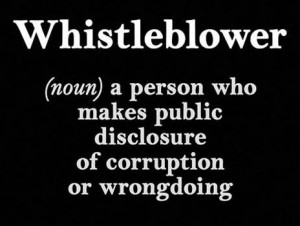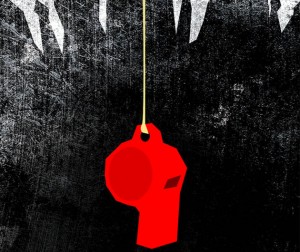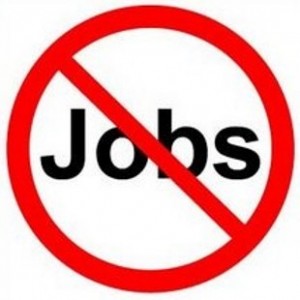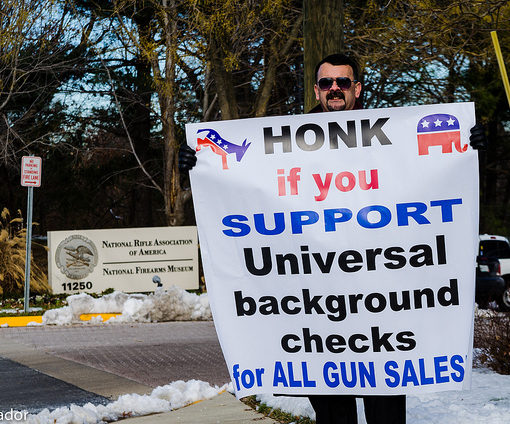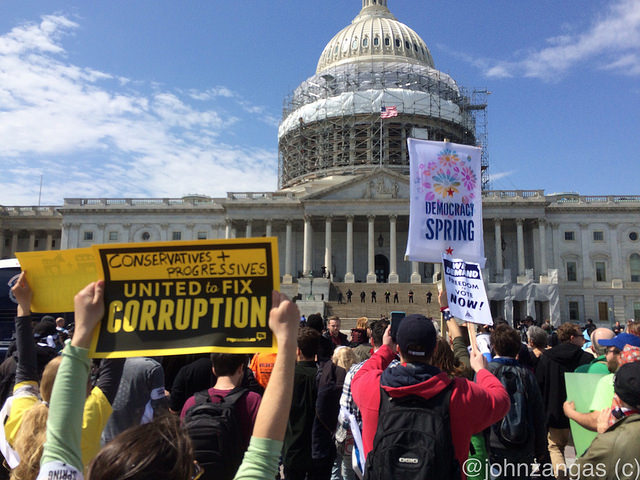By Keith Wrightson
Today’s federal whistleblower protection laws are far too weak for many private sector workers, making it extremely difficult for them to expose wrongdoing because they rightly fear they can and will be retaliated against.
Of concern are whistleblower protections allotted to workers under 29 U.S.C. §660, Section 11(c) (1970) (hereafter 11(c)), one of 22 statutory and common law provisions aimed at safeguarding private sector whistleblowers that the Occupational Safety and Health Administration (OSHA) is charged with enforcing. Section 11(c) is intended to protect workers who have disclosed waste, fraud or abuse, but the protections are grossly inadequate.
Section 11(c) was designed to provide protections to nearly every employee in the private sector but falls short because workers are not allotted sufficient time to file a retaliation complaint. Additionally, workers are not granted due process rights or remedies such as attorneys fees and compensatory damages under the existing law. Several other private-sector whistleblower statues – including the Federal Railroad Safety Act (1970) and the Pipeline Safety Improvement Act (2002) – allow for worker anti-retaliatory protections up to 180 days from the date of the incident being reported. But under 11(c), workers are protected from retaliation only up to 30 days from the incident.
Section 11(c) does not provide due process rights to workers and limits whistleblowers to receiving an initial investigation by OSHA and an administrative hearing by its Office of Administrative Law Judges. The ability to hold companies accountable for wrongdoing is critical to an injured worker, but 11(c) denies the injured party access to court for a jury trial.
Access to the court is a cornerstone philosophy of our democracy. When Congress enacted the Sarbanes-Oxley Act, it introduced jury trials for whistleblowers to end the monopoly of administrative hearings, but unfortunately this right is attainable only after a 180-day administrative exhaustion period.
Available remedies extended to workers who disclose waste, fraud and abuse are lacking in 11(c). As laid out in the statute, workers will be allotted reinstatement and back pay only if they are successful in their claim. Comparatively, the Wendell H. Ford Aviation Investment and Reform Act for the 21st Century (AIR21) (2001) calls for reinstatement, back pay, attorneys fees and compensatory damages for workers who disclose waste, fraud and abuse. The provisions allotted in the AIR21 are more appropriate and do not place the onus on the employee to provide his or her own legal funding if unsuccessful.
For more than 40 years, Congress has made great strides to better protect workers from retaliation for disclosing waste, fraud and abuse outside of the industries covered by 11(c). However, Congress has failed to reaffirm its commitment to private sector workers when they have failed to reform the statue to enable 11(c) whistleblowers to prevail.
Congress must take aggressive action and reform the intended protections in 11(c) so that there is consistency among all the whistleblower statutes that OSHA enforces.
This article was originally published at www.citizen.org on 4/29/14.


